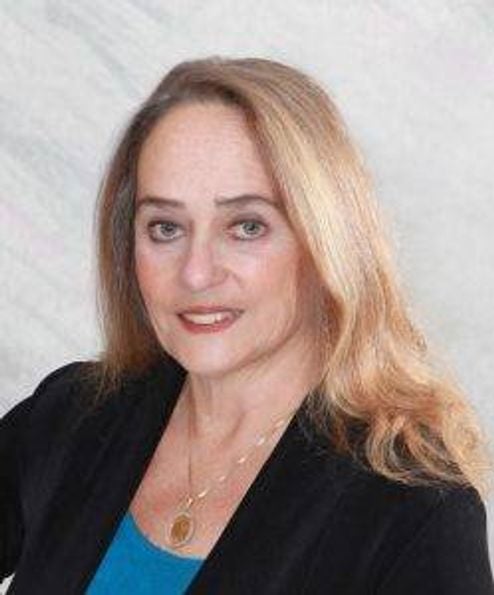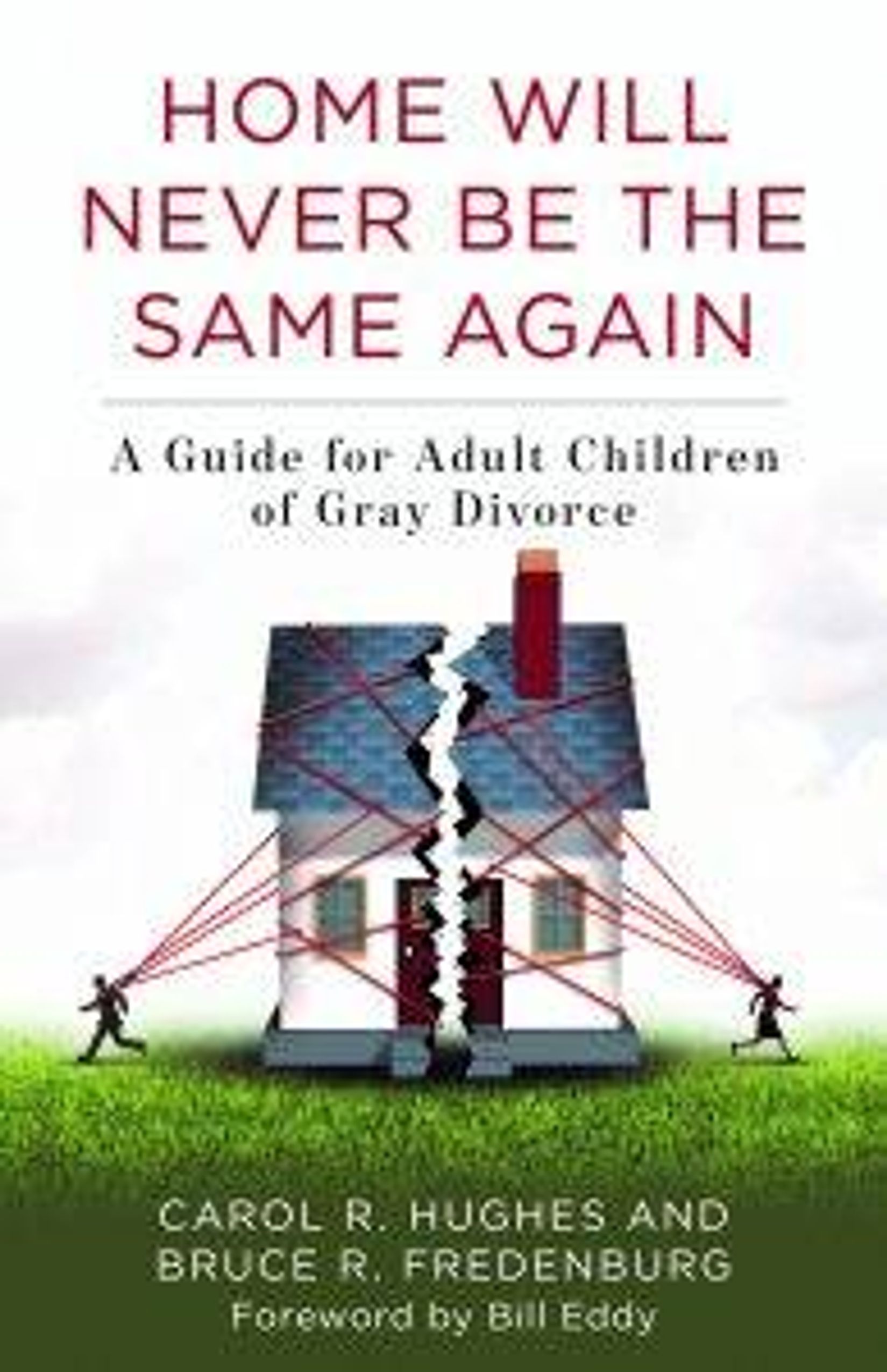Adult Children Often Mourn Parents' Divorce
According to a new book, from millennials to boomers, the effects can be painful
When he was a young man, Bruce Fredenburg observed his parents’ unhappy marriage and thought they should probably get a divorce. When his mother finally told him she was going to divorce his father, Fredenburg was 31, in graduate school and married himself.

His reaction? “I felt shocked, and almost guilty that I’d wished it would happen,” he says.
As Fredenburg and his co-author Carol Hughes write in their new book, Home Will Never Be the Same Again: A Guide for Adult Children of Gray Divorce, shock is a common reaction to the news that parents are divorcing, no matter if a child is 18 or 50.
In the opening of the book, the authors include quotes from adult children of divorce they interviewed as part of their research. The profound impact of a parents' divorce is revealed in comments such as these: "My entire life past and present changed in an instant." "It shook me to my foundation." "Had our whole family life together been all smoke and mirrors?"
The probability is high there are many grown sons and daughters who are experiencing these same emotions. According to statistics, between 1990 and 2015, the divorce rate for adults 50+ doubled. By 2030, it's projected to triple.
"Even if adult children knew the marriage wasn't happy, in their minds, it's not logical for parents not to be together."
In a recent conversation with Next Avenue, Fredenburg and Hughes, both longtime marriage and family therapists based in Laguna Hills, Calif., said sometimes the older the child, the more profound the feeling of loss.
“For younger children, they see that life in the home is changing. But for adults, they view it as a disintegration of their family’s history,” Fredenburg says.
Highlights from the interview:
Next Avenue: Today, there are many older couples divorcing who never experienced divorce in their own families when they were growing up. How might this affect the empathy they have for their adult children who are struggling with the divorce?
Bruce Fredenburg: In my experience with clients, most of the time they are overwhelmed with their own emotions and unless it’s brought to their attention, they may not realize it's an issue.

Carol Hughes: There’s this mythology in our culture that because their children are adults, it shouldn’t affect them. But why wouldn’t they be affected? Their lives are changing, too.
Looking to Place Blame After Divorce
Is there a difference in the way adult children react to their parents’ divorce based on circumstances? For instance, which parent initiated the divorce or if infidelity was involved?
Hughes: It’s part of human nature to want someone to blame. If one of the parents had an affair, it’s an easy target, but it really depends on the emotional maturity of the adult child when it comes to how they react.
Fredenburg: Even if adult children have experienced infidelity in their own relationships, it can be more personally offensive to them to find out about their parent’s infidelity. There tends to be more anger directed towards that parent.
Hughes: When parents divorce, it shakes the family foundation. Even if adult children knew the marriage wasn’t happy, in their minds, it’s not logical for parents not to be together.
Fredenburg: Because the family has always existed the way it has existed. You don’t know how precious oxygen is until your head is underwater.
Healing From a Rift
Despite the current pandemic, there will always be family gatherings and events to navigate. What are the best ways for all involved to manage these events respectfully?

Fredenburg: There should be good communication and a clear understanding of boundaries prior to the event. If people take sides, or one parent is angry, this takes the focus away from those who are being celebrated. And a family celebration turns into a family trauma.
If the parents’ divorce causes a real rift between a parent and child, what are the best steps to take to help mend the relationship?
Fredenburg: The divorce process people choose is the most important. If litigation is involved, there can be more damage as people could end up taking sides. If the process is more family-focused and more collaborative, it’s less likely that will happen. [You can learn more about divorce mediation in the Friends Talk Money podcast's episode, "Divorce After 50."]
If a rift develops, talking to a family therapist, or a member of the clergy, can be helpful.
Hughes: Research shows that within five to ten years following a divorce, most families have been able to heal from the pain of the divorce. Many times, the adult child will take the first step — especially if they have their own children. They don’t want their children to lose relationships with grandparents. They want them to have holidays together.
"People are under a great deal of stress; we'll likely see divorce in general increase, not just gray divorces."
And the older their parents get, the adult children can see mortality on the horizon. You can’t mend relationships after someone is gone.
The Impact of the Pandemic on Divorce
Will the pandemic lead to an increase in the number of “gray divorces,” and will the added stressors of the times have greater impact on families?
Hughes: If we look at what happened in China and Italy [during the pandemic], the divorce rate skyrocketed in both countries. According to research, the rate of anxiety and depression is up thirty-eight percent from what it was at this time last year. People are under a great deal of stress; we’ll likely see divorce in general increase, not just gray divorces.

Fredenburg: In a study at the University of Washington, researchers determined that an intimate relationship needs a five to one ratio of positive to negative interactions — for every negative exchange, there needs to be five positive ones for balance. In the climate of the pandemic, with people spending more time together, and with fewer opportunities to spend time away from each other, there is less chance that you’re having as many positive interactions.
Hughes: Adult children are being furloughed, too, and they may have added financial stress. The virus is an invisible enemy; it’s putting a lot of stress on families in general.
Of all the adult children you interviewed about their parents’ divorce, were there many who were completely supportive of the decision?
Hughes: In my experience working with adult children, even though they thought the divorce was for the best, they are still experiencing a loss. Our identity comes from our family of origin. Some start to question their own relationship and their ability to sustain a marriage.
Fredenburg: When parents divorce, adult children feel the loss of their own childhood. They look back and think ‘our family wasn’t like other families.’ Everybody wants to have a happy family.


